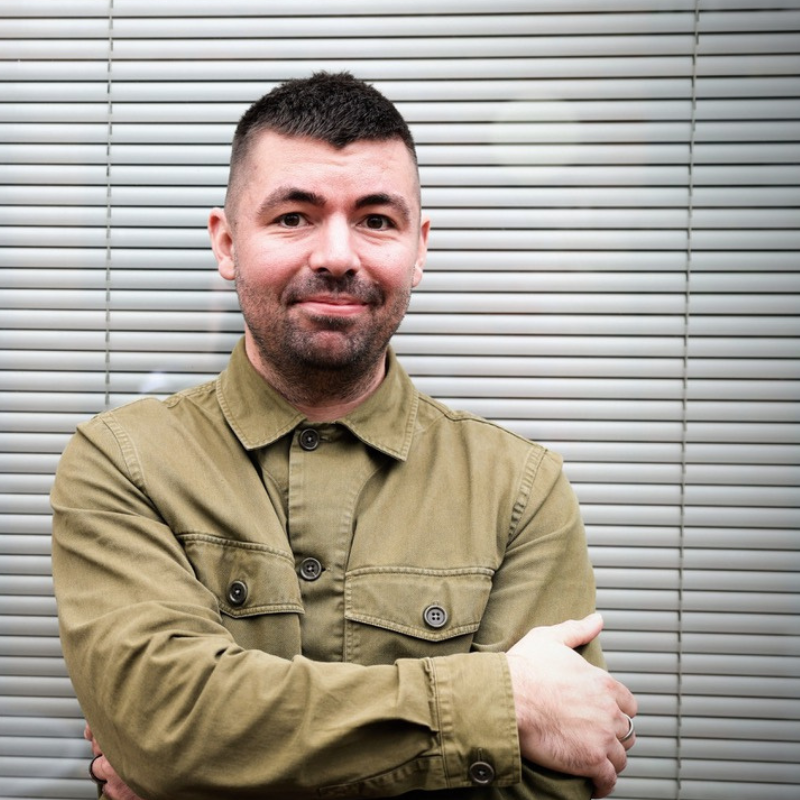irishfilmtv.com
your premiere source for Irish on-screen news
From tabloid whistleblower to provocative filmmaker, Rich Peppiatt’s journey to potential BAFTA glory is as unconventional as they come. His latest film KNEECAP, which has garnered six BAFTA nominations and 17 IFTA nods, marks an extraordinary transformation for the London-born journalist who once made headlines exposing questionable practices at the Daily Star.
After his high-profile resignation in 2011 and multiple mentions in Lord Leveson’s phone-hacking inquiry, Peppiatt channeled his experiences into a stand-up show about tabloid culture. This caught the attention of Hugh Grant and Steve Coogan, both prominent figures in the Leveson inquiry, who encouraged him to adapt it into his first film. “If you are a person who doesn’t really know what the hell you are doing in life and Hugh Grant and Steve Coogan come up to you and ask you to make a film, you go: ‘Yeah, I’ll give it a go,'” Peppiatt recalls. This baptism by fire ignited his passion for filmmaking.
The path to KNEECAP began after Peppiatt moved to Belfast with his wife, who hails from the republican suburb of Andersonstown. Two weeks into his new life, he encountered the Irish-language rap trio in a pub and was immediately captivated. The film tells their semi-autobiographical story, featuring the band members DJ Próvaí, Mo Chara, and Móglaí Bap, alongside Michael Fassbender as an IRA operative on the run.
The film pushes boundaries with its provocative content, including a controversial line referencing the 1984 Brighton hotel bombing that funders wanted removed. Peppiatt stood his ground, believing that “comedy and art should be pushing up against a line of acceptability.” His dedication to authenticity led him to learn Irish and immerse himself in the culture, understanding the profound significance of the language to young people in Belfast. “You can draw a border on my land, but I will still dream in the language I want,” he reflects on the film’s underlying message.
KNEECAP transcends mere entertainment, emerging as a movement that challenges stereotypes about working-class representation in media. The film showcases young people who can be both street-smart and politically engaged, wearing tracksuits while articulating complex political views. The real-life band has already made waves, with their debut single C.E.A.R.T.A banned by Irish state radio for its explicit content.
Never one to rest on his laurels, Peppiatt is already developing his next project – a controversial satire about Caribbean tourism tackling racial politics. His creative philosophy remains unchanged: “Unless there is some element of ‘I might be absolutely cancelled’, or ‘it might be the last thing I ever do’, then I can’t really get out of bed for it.” It’s this fearless approach to filmmaking that has transformed him from tabloid whistleblower to one of cinema’s most daring new voices.
Copyright © 2025. irishfilmtv.com. All Rights Reserved.